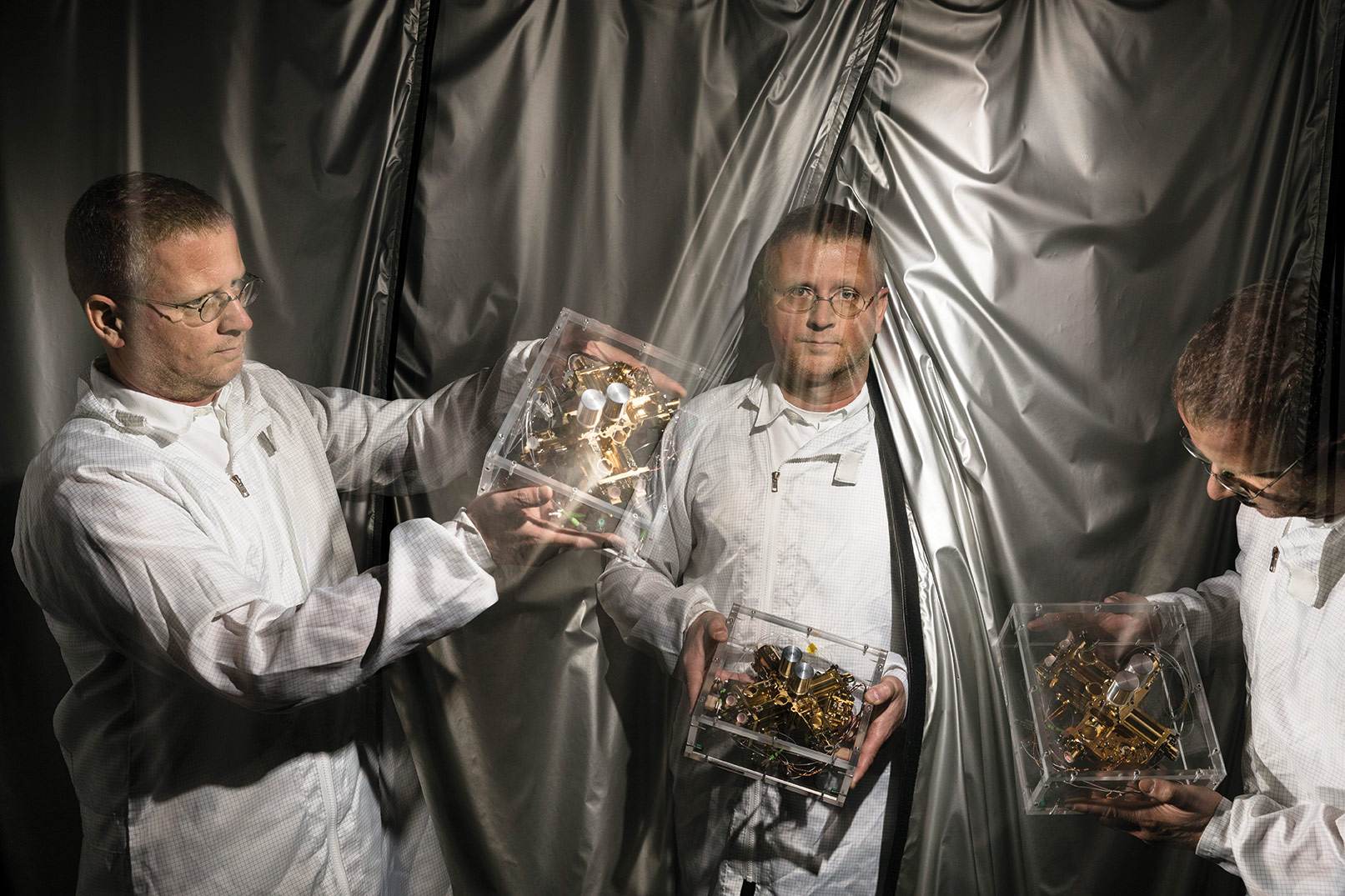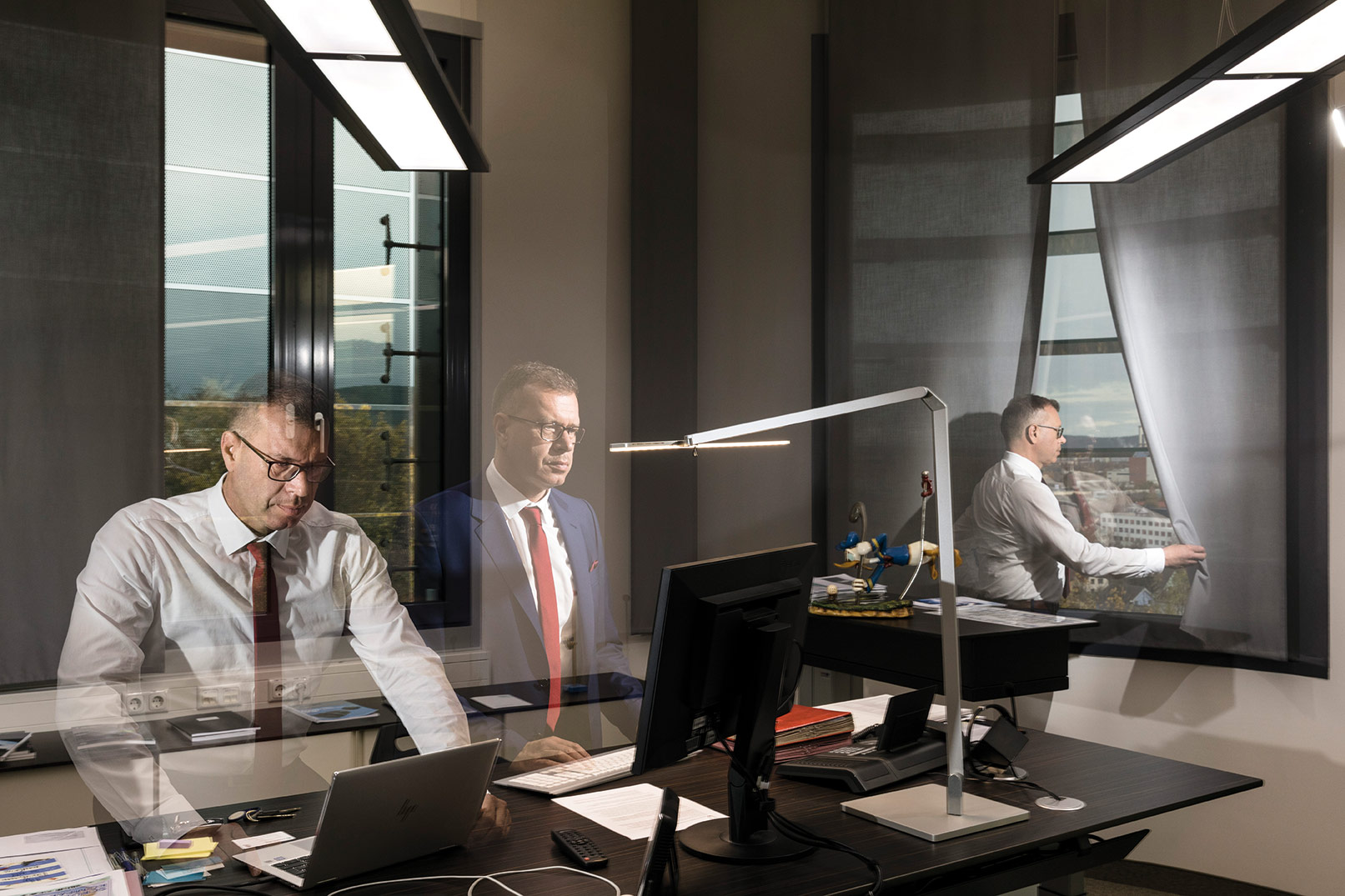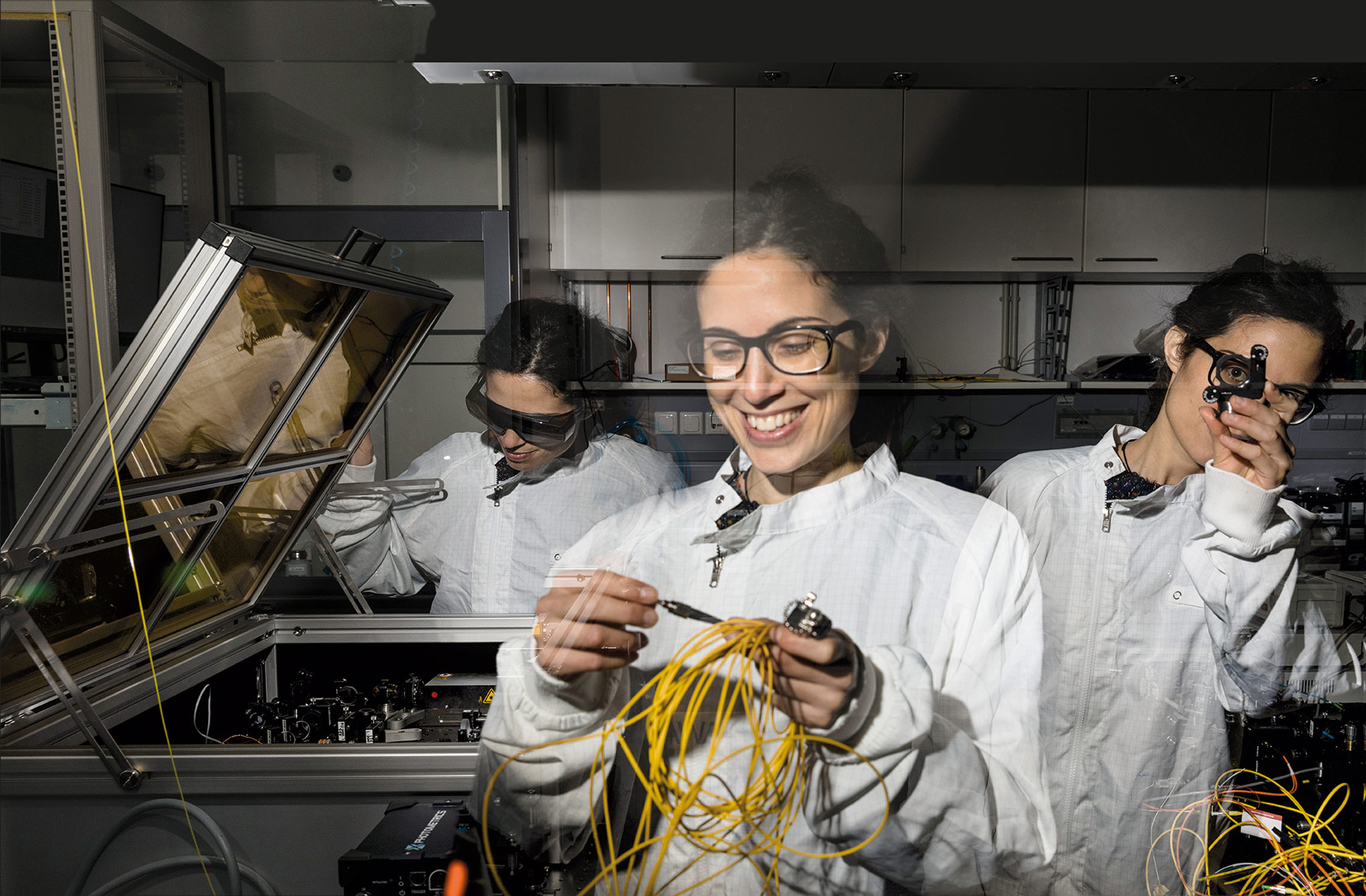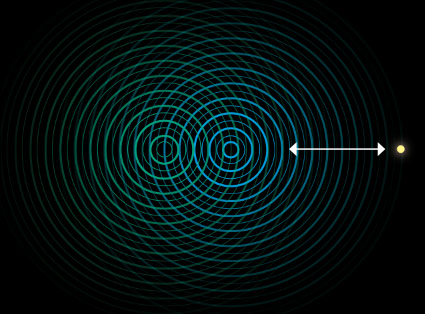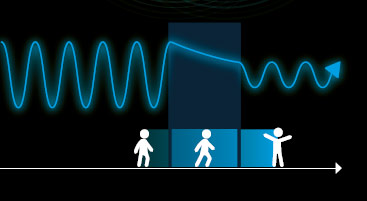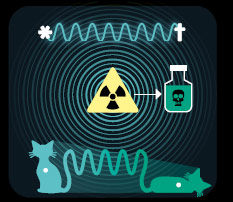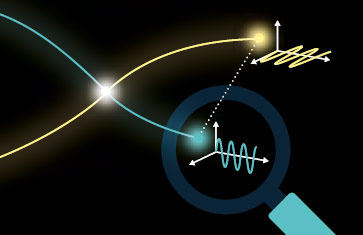The future is now
Web special of the cover story of Fraunhofer magazine 4.2019
Welcome to the world of quanta, where nothing seems logical, but everything appears possible. A new era is dawning with quantum technologies helping us to better understand and order our world. Fraunhofer is bringing science to applications.
Quantum mechanics is slippery, defying intuitive grasp. Albert Einstein called it “spooky.” He was born in 1879. Yet here it is in the here and now, a ghost knocking at the door of everyday reality. In a rare consensus, experts agree that quantum technology is poised to change the world. Take the field of medicine: Quantum sensors could shed new light on brain functions. Quantum imaging could revolutionize diagnostic procedures. Quantum computers could yield new insights into molecular chemistry to fast-track drug discovery and slash their production costs.
The mind boggles at the potential of applied quantum mechanics. Who knows where this technology will take us? Will we be able to better protect the climate with the means to measure and predict climate change far more accurately? What marvelous products might emerge once we are able to develop and test materials faster and at lower cost? Will gridlocks be but a bygone annoyance once quantum computers send every traveler down the best path? And will quantum technology help create a secure and sovereign digital infrastructure for business and private citizens?
Expectations are high; investments are soaring. The German federal government has earmarked 650 million euros for research into quantum technologies until 2021. And the EU’s Quantum Flagship initiative has a budget of one billion euros for European research over the coming ten years. Fraunhofer and IBM will be bringing the world’s first commercial quantum computer to Europe to serve as an open research platform. They aim to ramp it up in Germany by late 2021. Prof. Reimund Neugebauer, president of the Fraunhofer-Gesellschaft, expects it to give a “decisive boost for German research and companies of all sizes” with “full data sovereignty based on European law.”
